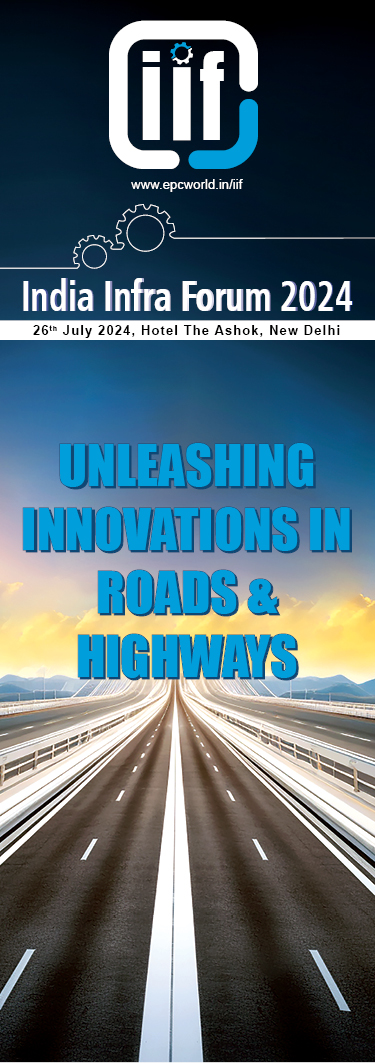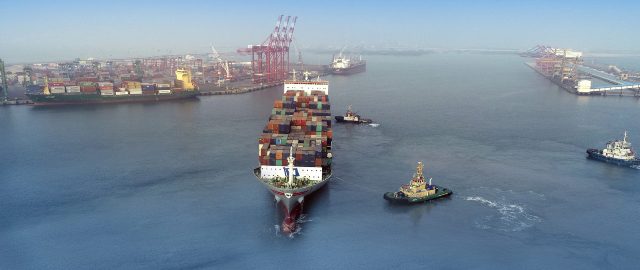by Rajiv Agarwal, CEO and Managing Director, Essar Ports
India has a rich history of trade across seas. Ports were developed at an early stage of industrialisation to provide economic support to the country. With a long coastline of 7,516-km and access to the sea on three sides, the Indian Ports and Shipping industry is considered as the engine of economic development. It plays a vital role and functions as an important gateway of international trade.
The Indian Government has played a crucial role in supporting the ports sector with multiple reforms and policies. One of the recent initiatives undertaken by the government is the ambitious ‘Sagarmala’ project. The project gives emphasis to the modernization of ports and development of infrastructure to carry out trade operations quickly, efficiently and cost effectively. It aims to enhance the performance of the logistics sector by focusing on modernising existing ports, building new ports and increasing the level of port connectivity in the country. With the infusion of new technology along with capacity building, the cumulative capacity available at the Indian ports was certain to match the demand.
But as we witness, the year 2020 has brought about its own set of challenges. The Covid-19 pandemic has placed the world into a crisis like situation causing unprecedented disruption to economies, global value chain and international trade. No industry or sector has been left unaffected, including the ports sector although it has been categorized as essential services right from the initial phases of the lockdown implemented in the country. The restrictions on the movement of goods and services within the country which were triggered from the first phase of lockdown, affected the whole maritime industry resulting in the reduction of the workforce, lower freight rates, fall in demand, and cargo volumes along with the restriction on crew changes.
Eventually, some restrictions were lifted and the Indian ports sector regained momentum and observed a spike in traffic. It is now on a path to recovery but the overall revival in cargo volumes and the sector would wholly depend on how quick the demand and actual consumption meets the gap and the change in consumer behaviour.
However, we all would agree to the fact that the viral outbreak of the pandemic has surely taught us to unlearn and learn new ways of living and doing business. It changed our entire business ecosystem - new working habits and behaviours were inculcated, new working models and organisational structures were adopted and replaced with work from home culture. It made us realise the importance of developing the ability to maintain business continuity to endure or adapt during such sudden economic and social change.
We believe, adaptability and agility are surely the keys for any business to be successful. As the world continues to grapple with the coronavirus, there needs to be more attention given to the new trends that will shape the future of global business. It is now critical to strike a balance between short-term requirements with long-term planning. This is no different for the ports sector as well.
Technology deployment at major and non-major ports in India has been present over the past few years but the pandemic now brings in an urgency to shift from the traditional work environment at ports to exploring technological advancements such as Automation, Artificial Intelligence, Internet of Things, Drone technology, virtual working, seamless connectivity, Robotics in production processes, Blockchain technology, etc. This will enable the movement of goods seamlessly on an intermodal network at very low costs. This is bound to boost EXIM competitiveness.
Digital technologies are becoming a key element in the logistics sector development especially during this time when business is carried out with various restrictions and restraints. With the infusion of technology and the advancement in technology, the ports sector will see the evolution of contemporary business models in the years to come.
Ports companies are now thinking of adopting newer techniques for sustainable edge, strategies to be implemented for post Covid recovery, and planning for the future. With employees continuing to work remotely, companies are making huge investments in technology to adapt to this new normal work culture and environment. The coronavirus pandemic has surely acted as a catalyst for digital revolution and mechanisation in the ports sector for them to be future ready.
Adoption of mechanisation and smart technological upgrades will create productivity, reduce dependence on human intervention, eliminate onsite customs clearance, reduce spillage and ensure better management of inventory.
Though the use of AI is still at a nascent phase but can surely turn out to be a vital factor in the ports industry. Blockchain technology has made the flow of information smoother across the business, thereby making trade related activities swifter and more efficient. Though we face many challenges in the implementation of the blockchain technology given the industry nuances, standards and reforms but adapting to this game-changing technology has become ever more important.
Internet of Things will enable day-to-day operations to be automated and become more efficient with data transferred through sensor technology and manage tracking, surveillance, maintenance, navigation, etc.
Similarly, the implementation of automation and datafication will minimise human intervention to minimal level. Usage of automated machinery will undertake high labour intensive task, manage technology-based interventions, such as e-tolling, e-document and paperwork, digital verification, signing up and signing off of crew members, etc.
High level of mechanisation will unlock the sector’s potential and effectively improve cargo handling with lower turnaround time at ports, replacement of paperwork by e-documentation, installation of scanners at ports, cut multiple levels of cargo handling, encourage paperless transactions, etc. It will not only improve the operational efficiency and security of ports but also optimise the utilisation of existing infrastructure. Quick turnaround time and dedicated hinterland connectivity will make ports attractive and put India at par on the map of international trade.
The introduction of new smart technologies will also make current jobs more organised and easier for the employees. Structured and organised technology will eliminate errors and will be very time-efficient which will expedite the entire process. However, all this will fall in place and accelerate the process, only with a proper understanding of technology by the workforce in order to sustain in a mechanised work environment. This will need huge investments, proper training, learning and unlearning, reskilling and upskilling of the workforce to meet skilled manpower requirement at the ports, use of technology and practices in the Indian maritime sector.
Technology has surely paved its way in the transformation of the ports and shipping industry and is here to stay.
Adaptation to any change means making adjustments to the current behaviour. In the maritime world as well, acclimatising to this demanding change will be applicable to the business as well as to the entire workforce and the same will be order of day of future.






